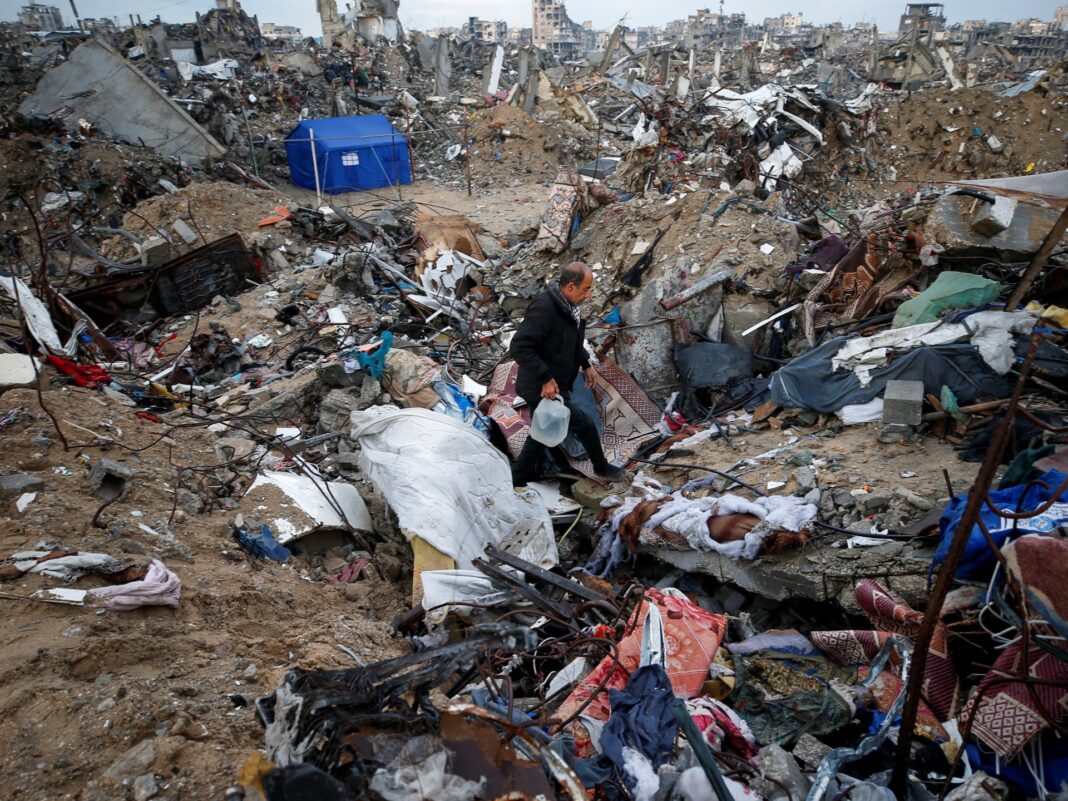As winter storms grip Gaza, the combination of severe weather, lack of shelter, and Israel’s ongoing blockade of humanitarian aid has created an increasingly desperate situation for hundreds of thousands of displaced people.
Cold temperatures, relentless rain, and strong winds have turned makeshift shelters into barely liveable spaces, offering little to no protection from the elements.
Israel’s restrictions on aid deliveries have only compounded the crisis, leaving many without access to the most basic necessities, including food, medicine, and heating.
The curbs were among the key violations cited by Hamas when it announced on Monday that it would postpone the release of more Israeli prisoners, initially scheduled for Saturday, unless Prime Minister Benjamin Netanyahu’s government complied with the terms of the ceasefire agreement.
International aid groups and officials have raised alarm over how the inconsistent flow of supplies due to Israeli roadblocks is worsening humanitarian conditions in Gaza.
“The health system is ruined. Malnutrition is rising. The risk of famine persists,” said Hanan Balkhy, regional director for the Eastern Mediterranean at the World Health Organization.
“We are ready to scale up our response, but we urgently need systematic and sustained access to the population across Gaza, and we need an end to restrictions on the entry of essential supplies.”
A recent update from the UN aid coordination office said nearly one million displaced Palestinians are living in “substandard tents or makeshift shelters, with families resorting to sewing old rice sacks together for basic cover”.
Hosni Mahna, a spokesperson for the Gaza municipality, said: “The cold weather has a catastrophic impact on hundreds of thousands of Palestinians living in tents and temporary shelters, especially with the lack of heating and basic supplies to protect against rain and strong winds.”
Families, including young children and the elderly, sleep on cold dirt or cement floors without insulation, increasing their risk of infection and illness. Strong winds have ripped apart makeshift tents, while heavy rains have flooded entire shelter camps, leaving many in uninhabitable conditions.
“There is an acute shortage of tents. In the Gaza and North governorates alone, we need at least 120,000 tents to temporarily shelter residents who have lost their homes, but what has been delivered so far covers only 10 percent of the actual need,” said Mahna.


